Astronaut twin Scott Kelly returns after year in space
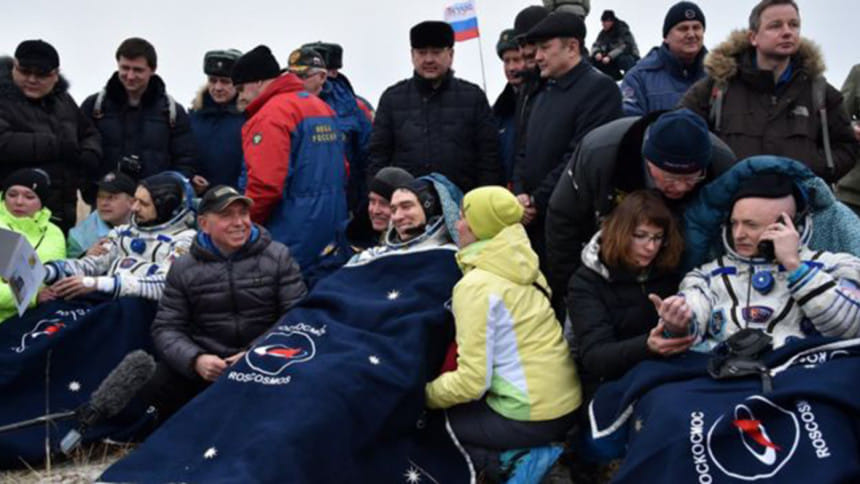
US astronaut Scott Kelly and Russian cosmonaut Mikhail Kornienko have touched down on Earth after almost a year in space.
Their 340-day mission aboard the International Space Station (ISS) is twice the length of a normal stay.
Their extended tour is part of an effort to study the effects of long-duration spaceflight on the body.
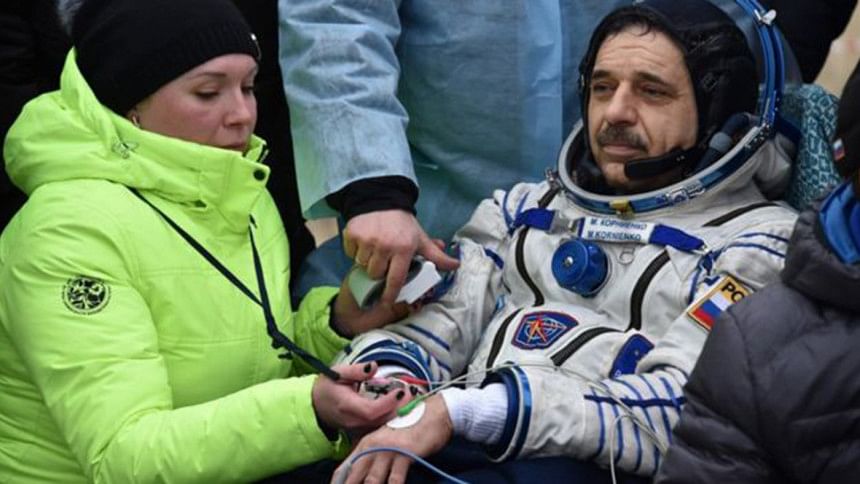
But scientists will gain further insights by comparing Scott Kelly with his Earthbound identical twin, Mark.
A Soyuz capsule carrying Kelly, Kornienko and Russian crew member Sergey Volkov parachuted down on to a steppe in Kazakhstan at 10:26 local time (04:26 GMT).
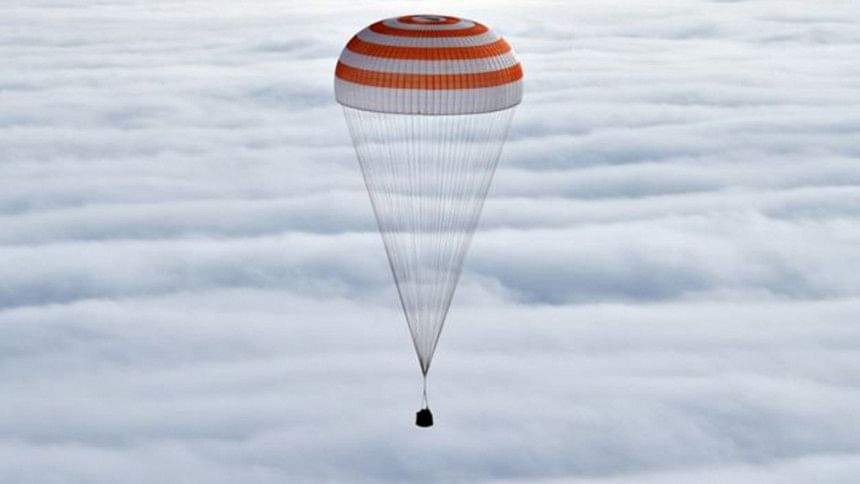
The mission is a record for the ISS and will give Cmdr Kelly a tally of 520 cumulative days in space, over four flights.
Cmdr Kelly has also returned rocket (salad) seeds that were taken up to the orbiting outpost by UK astronaut Tim Peake in December. They will be distributed to schools to allow pupils to compare their growth with rocket plants that have stayed on Earth.
The idea behind the twin study is to help minimise extraneous factors as scientists research how genetically identical individuals respond to different conditions over a year.
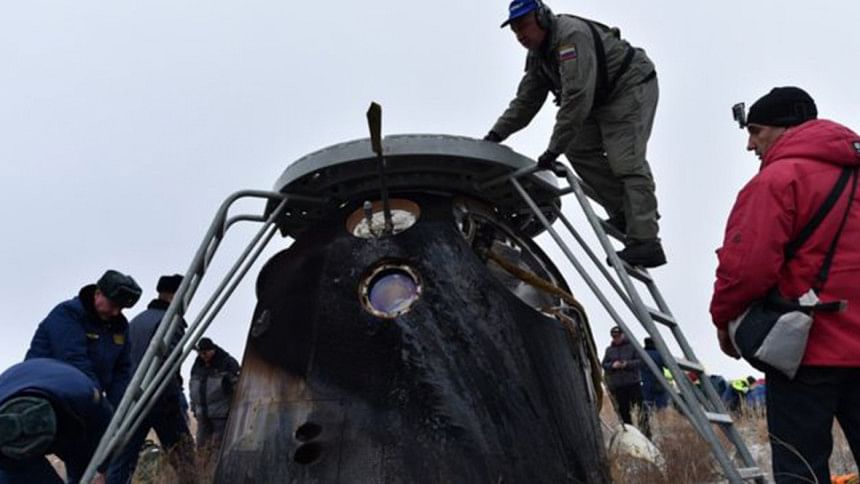
The harsh space environment takes its toll in the form of muscle atrophy, sleep problems, bone loss, vision impairment and radiation exposure. But some of the most pronounced effects are on the mind.
Before landing, Cmdr Kelly told reporters during a live link-up: "Physically I feel pretty good... but the hardest part is being isolated in the physical sense from people on the ground who are important to you. There's a loss of connection."
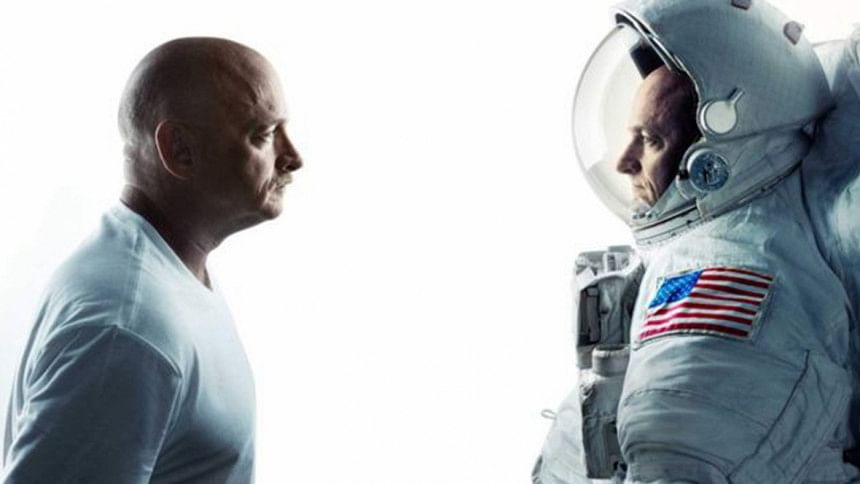
From Kazakhstan, Cmdr Kelly will be flown to Houston in the US, where researchers at the US space agency (Nasa) will begin a series of scientific checks.
Mark Kelly, who was an astronaut, now retired, has been undergoing tests of his own on Earth during his brother's sojourn on the ISS.
Comparisons between the twins should allow scientists to deepen their understanding of the subtle physical and psychological shifts that occur during long stays on orbit.
Nasa says the research should inform its stated aim of one day sending humans to Mars.
After returning from an extended stay in the weightless environment of space, many astronauts have difficulty walking unaided.
Shortly after landing, Kelly, Kornienko and Volkov will enter a medical tent to participate in a series of "field tests" that will assess their balance, co-ordination and ability to walk.
Returning ISS crews have immediate access to medical assistance, but future crews to Mars will have little time to recover once they land on the Red Planet's surface. Scientists want to devise ways to prevent injury and improve their recovery time.
"We go through about an hour of field tests of various kinds - one is even like an obstacle course, where you run around, stand up from a sitting position and jump," Cmdr Kelly said.
Despite the length of their flight, Kelly and Kornienko are still some way shy of the record for the longest single spaceflight, which is held by the Russian Valery Polyakov, who spent 437 consecutive days aboard the Mir space station in the mid-1990s.
On Monday, Scott Kelly handed over command of the space station to his American colleague Timothy Kopra, who remains on the orbiting outpost with Tim Peake and the Russian Yuri Malenchenko.
The next crew, consisting of the American Jeffrey Williams and the Russians Aleksey Ovchinin and Oleg Skripochka, is set to launch on a Soyuz rocket from Baikonur in Kazakhstan on 18 March.

 For all latest news, follow The Daily Star's Google News channel.
For all latest news, follow The Daily Star's Google News channel. 


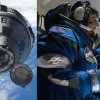
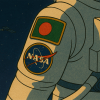
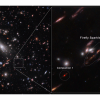
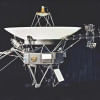


Comments